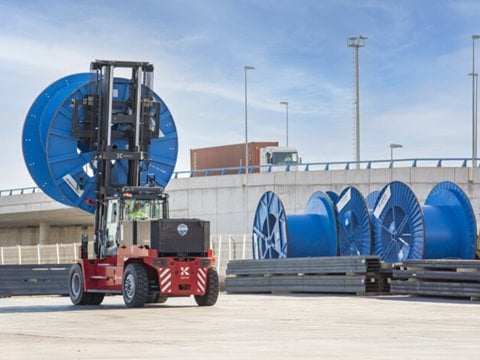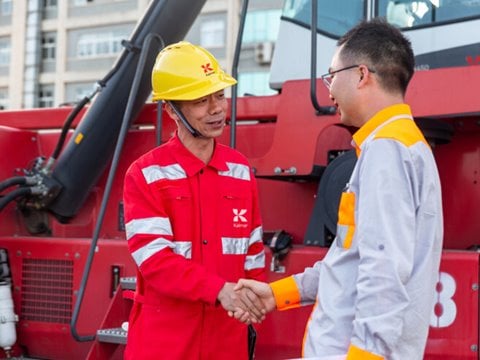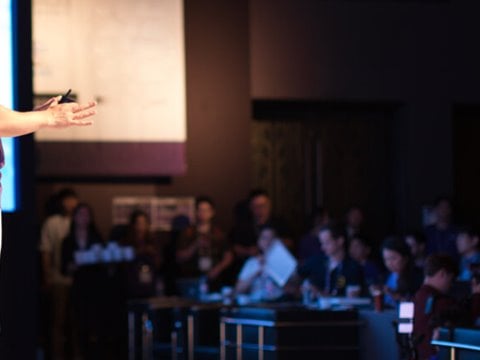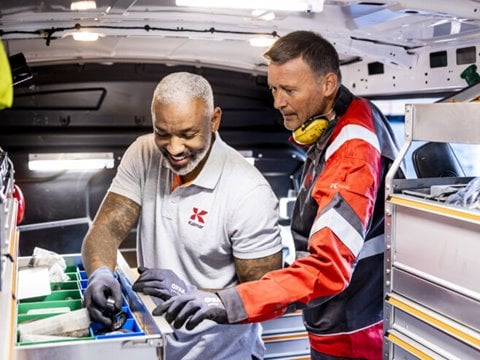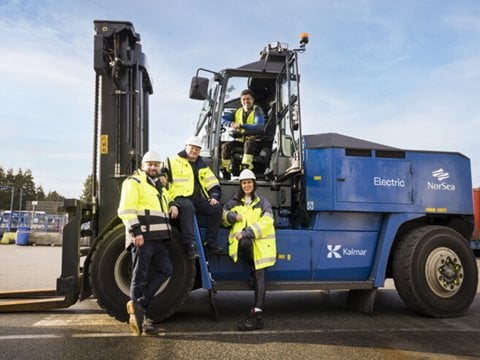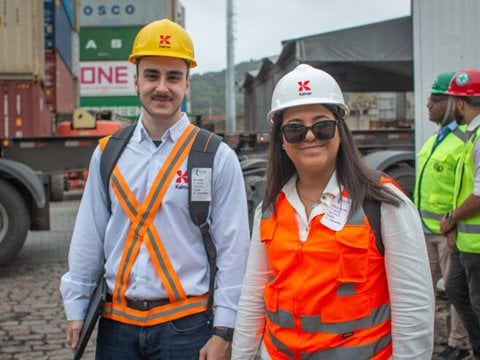
Artificial intelligence makes waves
Artificial intelligence and machine learning are exerting a growing influence on port operations through applications such as remote monitoring, maximising the productivity of terminal machinery and addressing many of the inefficiencies inherent in the maritime supply chain.
Juho Vihonen, Cargotec’s AI & analytics architect observes that artificial intelligence is already shaping product development as forward-thinking customers increasingly view the use of machine learning technology as a prerequisite.
“Machine learning and artificial intelligence transform data into a monetisable asset, providing a high degree of competitive advantage,” Vihonen says. “For example, data-driven robotics is expected to open up new possibilities in terms of performance improvements. That is, it will be possible to synthesise motion controllers in a cost-effective way by example-guided learning, reducing the need for manual engineering.”
Machine learning and artificial intelligence tackle real needs in cargo handling operations. For example, all new mobile equipment built across the Kalmar range now includes a gateway solution that connects the machine securely over the internet to the Kalmar Cloud and continuously collects telemetry data.
To leverage this data, predictive condition monitoring has been deployed on approximately 1,000 Kalmar reachstackers. This monitoring automatically analyses telemetry readings – enabling frontline experts to proactively address customers’ recurring issues – and because it resides in the cloud it is optimised for distributed computing, scalability and speed.
“The potential of artificial intelligence to disrupt comes discreetly in small steps from domains in which it has already shown success, such as object recognition in imaging,” explains Vihonen. “This will result in safer terminal and port spaces, where virtually all cargo handling products will operate independently without a human operator.”
Increased terminal efficiency is the key
According to McKinsey & Company, better use of data could massively improve the coordination of arrivals at port where 48% of container ships arrive more than 12 hours behind schedule, wasting carriers’ fuel and underutilising terminal operators’ labour and quay space, as well as leaving machines idle.
Increased terminal efficiency is a key driver of machine learning deployment at Kalmar, as is evident from the fuel consumption model developed for the Kalmar Eco Reachstacker. This new range of reachstackers will significantly improve the eco-efficiency of operations, thereby contributing to a healthier environment. And by leveraging telemetry data and using machine learning to predict fuel consumption, a fuel consumption guarantee can be issued for each machine stating how many liters of fuel the reachstacker will consume per hour.
Strict emission goals
To offer the guarantee, Kalmar requires only three customer-specific input parameters. These parameters describe typical cargo handling patterns and enable the machine learning technology to characterise fuel consumption in advance. The fuel saving guarantee is reviewed after 12 months of use, and if the agreed fuel consumption is not met, Kalmar will pay back a one-time compensation to the customer.
Vihonen observes that future competitiveness in the port and terminal equipment industry will be largely defined by data exchange between systems, subsystems and open interfaces that are linked to high levels of autonomy.
“This will result in the development of products relying on data sharing and artificial intelligence-enabled predictive analytics for high uptimes,” he concludes.
Related articles
Further reading
Subscribe and receive updates in your email
Subscribe
